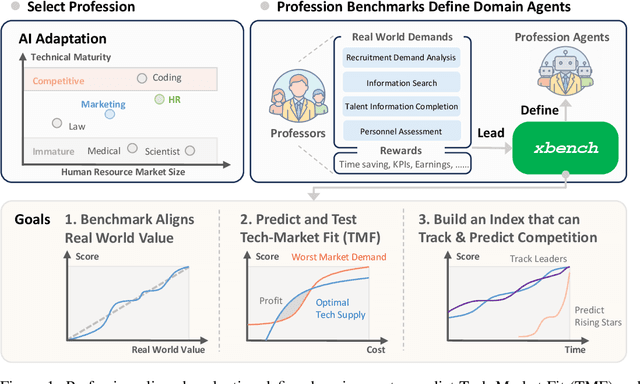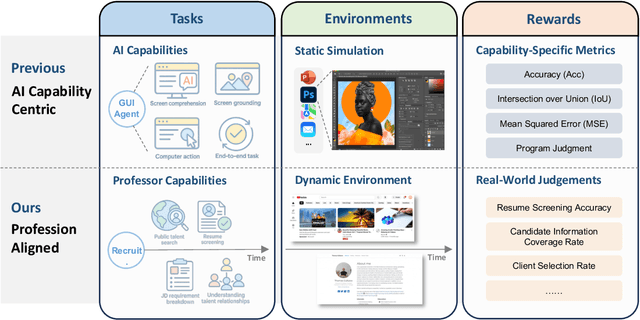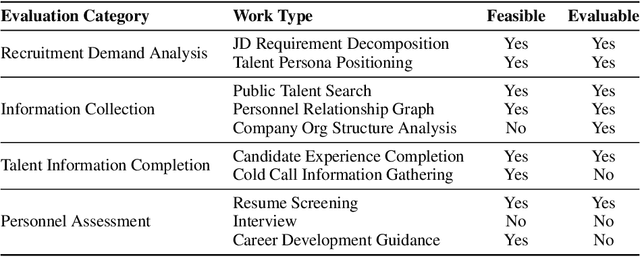Jiayi Mao
A Survey of Context Engineering for Large Language Models
Jul 17, 2025Abstract:The performance of Large Language Models (LLMs) is fundamentally determined by the contextual information provided during inference. This survey introduces Context Engineering, a formal discipline that transcends simple prompt design to encompass the systematic optimization of information payloads for LLMs. We present a comprehensive taxonomy decomposing Context Engineering into its foundational components and the sophisticated implementations that integrate them into intelligent systems. We first examine the foundational components: context retrieval and generation, context processing and context management. We then explore how these components are architecturally integrated to create sophisticated system implementations: retrieval-augmented generation (RAG), memory systems and tool-integrated reasoning, and multi-agent systems. Through this systematic analysis of over 1300 research papers, our survey not only establishes a technical roadmap for the field but also reveals a critical research gap: a fundamental asymmetry exists between model capabilities. While current models, augmented by advanced context engineering, demonstrate remarkable proficiency in understanding complex contexts, they exhibit pronounced limitations in generating equally sophisticated, long-form outputs. Addressing this gap is a defining priority for future research. Ultimately, this survey provides a unified framework for both researchers and engineers advancing context-aware AI.
xbench: Tracking Agents Productivity Scaling with Profession-Aligned Real-World Evaluations
Jun 16, 2025



Abstract:We introduce xbench, a dynamic, profession-aligned evaluation suite designed to bridge the gap between AI agent capabilities and real-world productivity. While existing benchmarks often focus on isolated technical skills, they may not accurately reflect the economic value agents deliver in professional settings. To address this, xbench targets commercially significant domains with evaluation tasks defined by industry professionals. Our framework creates metrics that strongly correlate with productivity value, enables prediction of Technology-Market Fit (TMF), and facilitates tracking of product capabilities over time. As our initial implementations, we present two benchmarks: Recruitment and Marketing. For Recruitment, we collect 50 tasks from real-world headhunting business scenarios to evaluate agents' abilities in company mapping, information retrieval, and talent sourcing. For Marketing, we assess agents' ability to match influencers with advertiser needs, evaluating their performance across 50 advertiser requirements using a curated pool of 836 candidate influencers. We present initial evaluation results for leading contemporary agents, establishing a baseline for these professional domains. Our continuously updated evalsets and evaluations are available at https://xbench.org.
Personalized Federated Learning with Adaptive Feature Aggregation and Knowledge Transfer
Oct 19, 2024Abstract:Federated Learning(FL) is popular as a privacy-preserving machine learning paradigm for generating a single model on decentralized data. However, statistical heterogeneity poses a significant challenge for FL. As a subfield of FL, personalized FL (pFL) has attracted attention for its ability to achieve personalized models that perform well on non-independent and identically distributed (Non-IID) data. However, existing pFL methods are limited in terms of leveraging the global model's knowledge to enhance generalization while achieving personalization on local data. To address this, we proposed a new method personalized Federated learning with Adaptive Feature Aggregation and Knowledge Transfer (FedAFK), to train better feature extractors while balancing generalization and personalization for participating clients, which improves the performance of personalized models on Non-IID data. We conduct extensive experiments on three datasets in two widely-used heterogeneous settings and show the superior performance of our proposed method over thirteen state-of-the-art baselines.
"Not Aligned" is Not "Malicious": Being Careful about Hallucinations of Large Language Models' Jailbreak
Jun 17, 2024



Abstract:"Jailbreak" is a major safety concern of Large Language Models (LLMs), which occurs when malicious prompts lead LLMs to produce harmful outputs, raising issues about the reliability and safety of LLMs. Therefore, an effective evaluation of jailbreaks is very crucial to develop its mitigation strategies. However, our research reveals that many jailbreaks identified by current evaluations may actually be hallucinations-erroneous outputs that are mistaken for genuine safety breaches. This finding suggests that some perceived vulnerabilities might not represent actual threats, indicating a need for more precise red teaming benchmarks. To address this problem, we propose the $\textbf{B}$enchmark for reli$\textbf{AB}$ilit$\textbf{Y}$ and jail$\textbf{B}$reak ha$\textbf{L}$l$\textbf{U}$cination $\textbf{E}$valuation (BabyBLUE). BabyBLUE introduces a specialized validation framework including various evaluators to enhance existing jailbreak benchmarks, ensuring outputs are useful malicious instructions. Additionally, BabyBLUE presents a new dataset as an augmentation to the existing red teaming benchmarks, specifically addressing hallucinations in jailbreaks, aiming to evaluate the true potential of jailbroken LLM outputs to cause harm to human society.
Understanding the Functional Roles of Modelling Components in Spiking Neural Networks
Mar 25, 2024Abstract:Spiking neural networks (SNNs), inspired by the neural circuits of the brain, are promising in achieving high computational efficiency with biological fidelity. Nevertheless, it is quite difficult to optimize SNNs because the functional roles of their modelling components remain unclear. By designing and evaluating several variants of the classic model, we systematically investigate the functional roles of key modelling components, leakage, reset, and recurrence, in leaky integrate-and-fire (LIF) based SNNs. Through extensive experiments, we demonstrate how these components influence the accuracy, generalization, and robustness of SNNs. Specifically, we find that the leakage plays a crucial role in balancing memory retention and robustness, the reset mechanism is essential for uninterrupted temporal processing and computational efficiency, and the recurrence enriches the capability to model complex dynamics at a cost of robustness degradation. With these interesting observations, we provide optimization suggestions for enhancing the performance of SNNs in different scenarios. This work deepens the understanding of how SNNs work, which offers valuable guidance for the development of more effective and robust neuromorphic models.
 Add to Chrome
Add to Chrome Add to Firefox
Add to Firefox Add to Edge
Add to Edge